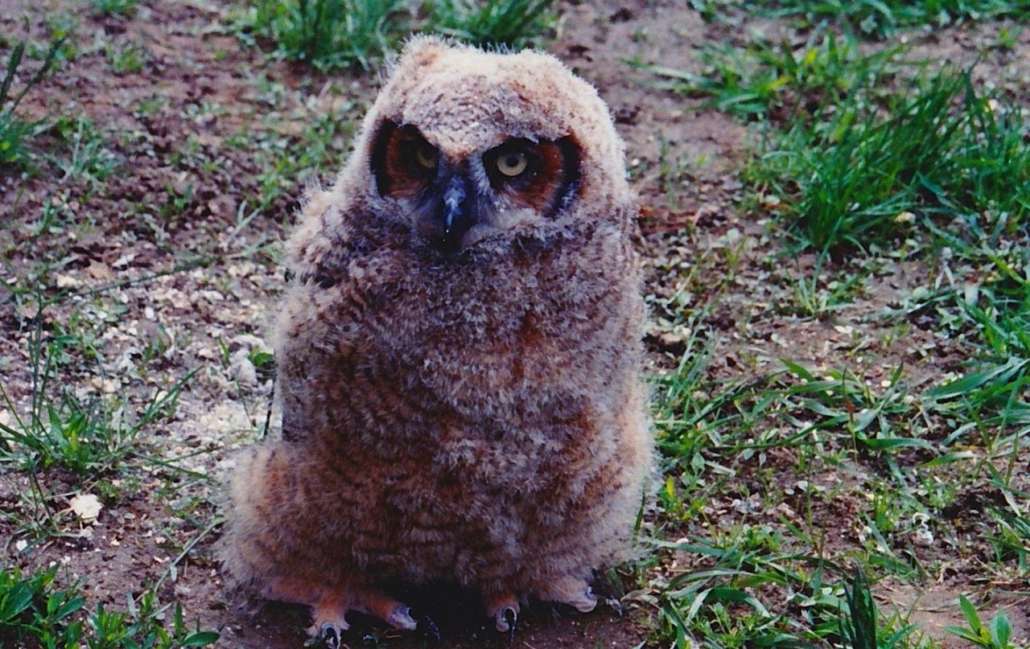CRITTER CHATTER: Words of wisdom
 by Jayne Winters
by Jayne Winters
Even though most of us still have some patches of snow in our yards, it won’t be long before it melts and we have more constant warmer temperatures of spring. For wildlife rehabbers, spring brings an increase in phone calls from well-intentioned folks who are worried about young animals that appear to have been abandoned by their mothers. I didn’t even need to ask Don Cote, at the Duck Pond Wildlife Center, what our column this month would be about. It may seem like “old news” to repeat this reminder every year, but sharing an article written by Carleen Cote about whether to rescue or not is advice that still holds true today:
“With the return of warmer, sunny days, our feathered friends are returning from their southern hiatus and the native wildlife are beginning to move around. This is an appropriate time for a reminder about whether or not young wildlife that appear to need rescuing really do need human intervention.
White-tail fawns probably are being rescued when they should have been left where they were found. A very young fawn will not move until given a signal from its mother. The doe does not remain with her fawn at all times; she leaves to feed herself and may not return to the fawn for several hours. A young fawn also has no odor, so if it is found by a dog, coyote or other potential predator, it’s only by accident, not from a scent.
If, when out walking in the fields and woods, you should spot a fawn, do not immediately assume that it needs to be rescued. Mark the spot where the fawn was spotted and leave. Return after a few hours or the next day. If the fawn is in the exact same spot, then it is probably safe to assume that something has happened to the doe. Contact a game warden or wildlife rehabber and follow the advice given.
If you find a young bird on the ground and no nest can be found, make a substitute nest from a berry box or basket; be sure there are holes for drainage and hang it in a tree close to the spot where the bird was found. The adults will respond to the feeding calls of their youngsters.
If cats are prowling or stalking any birds, especially when there may be young birds in a nest that cannot survive without being fed, the cat should be confined rather than removing the birds. Fledglings – young birds that are feathered and out of the nest – need time to master the art of flying. Though they may spend time on the ground, this is not necessarily an indication they need human intervention. Observe whether there are adult birds flying around as they could be the parents, either bringing food to the young or coaxing them to take their first flight.
There are times when rescue is necessary such as when an adult female has died, but her young survive, or when young animals have been observed for some time, but no adult arrives to care for them and lead them to safety. If you do rescue wildlife, as cute as they may seem, bring them to someone who has the necessary permits and knowledge to give them a greater chance of survival. If you are in doubt about the need to rescue any bird or animal, or have any questions about the little critters we all enjoy and for which we are concerned, please call. We’re happy to answer any questions or advise you as to where you might get an answer.”
Although Don, Jane, and Debbie are gearing up for the hectic weeks ahead, they will still transfer some rescues to other rehabbers who are helping to keep critter care at Duck Pond manageable. Please check the following web sites to see if there is a rehabber near you: https://www.mainevetmed.org/wildlife-rehabilitation or https://www.maine.gov/ifw/fish-wildlife/wildlife/living-with-wildlife/orphaned-injured-wildlife/index.html – Donald Cote operates Duck Pond Wildlife Care Center on Rte. 3 in Vassalboro. It is a non-profit state permitted rehab facility which is supported by his own resources and outside donations. Mailing address: 1787 North Belfast Ave., Vassalboro ME 04989 TEL: (207) 445-4326. Please note the previous e-mail address is no longer monitored.
Responsible journalism is hard work!
It is also expensive!
If you enjoy reading The Town Line and the good news we bring you each week, would you consider a donation to help us continue the work we’re doing?
The Town Line is a 501(c)(3) nonprofit private foundation, and all donations are tax deductible under the Internal Revenue Service code.
To help, please visit our online donation page or mail a check payable to The Town Line, PO Box 89, South China, ME 04358. Your contribution is appreciated!



Leave a Reply
Want to join the discussion?Feel free to contribute!